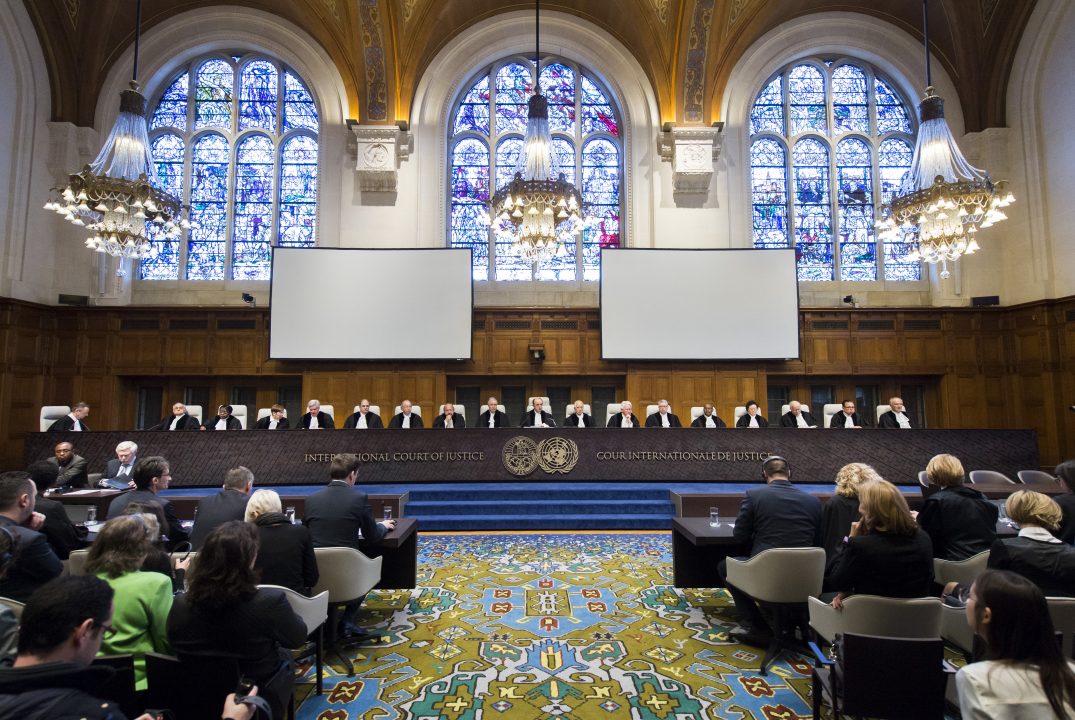
On June 12, the International Court of Justice (ICJ) announced that a joint application had been filed by the Kingdom of the Netherlands and Canada against the Syrian Arab Republic. The application relates to alleged violations of the Convention against Torture and Other Cruel, Inhuman, or Degrading Treatment or Punishment.
The International, Impartial and Independent Mechanism – Syria (IIIM) welcomed the announcement and stated its readiness to support the proceedings initiated before the ICJ. The Head of the IIIM, Catherine Marchi-Uhel said: “This step represents a significant milestone in the ongoing struggle against impunity, and for the victims and survivors affected by these crimes and violations.”
The Dutch- Canadian Accountability Initiative represents the type of justice process that the IIIM was established to assist. Since its inception the IIIM has concluded over 84 cooperation frameworks that have allowed it to build a vast and diverse repository of information and evidence which enables it to seize opportunities for justice that currently exist and prepare for those that may emerge in the future. On the application to the ICJ, Ms. Marchi-Uhel said, “We are prepared to support the ICJ’s determination of the Dutch-Canadian initiative. My team’s work on detention related crimes as part of the IIIM’s structural investigation is directly relevant to this initiative.”
The case initiated at the ICJ is one of the many concrete justice developments that the IIIM will support. Since it became operational in 2018 the number of requests for assistance the IIIM has received per year has tripled. To date there have been 280 such requests from 15 competent jurisdictions, out of which the IIIM team have been able to facilitate 143 distinct investigations.
“Each request we receive is an encouraging sign from jurisdictions of their commitment to accountability. A sign that there is an outcome to the tireless efforts of Syrian civil society in continuing to document and report violations of international law, and a sign to victims and survivors that their right to justice will be honoured.”
The IIIM’s assistance to competent jurisdictions is varied and includes the provision of information and evidence that it collects, records of witness interviews that it conducts; and legal briefs, factual analytical reports, and geolocation reports that it prepares.
Some of the recent cases that the IIIM has supported include:
- Germany’s Moafak D. case, culminating in a conviction for war crimes and murder, and a life imprisonment sentence.
- The ongoing Alaa M. case in Germany, where the accused is under trial for sexual violence and the murder of Syrian civilians while serving as a military doctor.
- The Lafarge case in France, where the court upheld a decision that the company could be charged for aiding and abetting crimes against humanity.
- A French case where senior Syrian government officials have been indicted for complicity in crimes against humanity and war crimes.
- Two cases in Sweden which resulted in the conviction of three individuals affiliated with ISIL.
This of course does not include earlier contributions such as our support to the Anwar R. case in Koblenz, Germany, leading to the landmark judgement for crimes against humanity.
These examples of cases that the IIIM has supported illustrate the breadth of the IIIM’s contribution to justice across differing jurisdictions. The IIIM continues to assist many other investigations and prosecutions, both in response to requests and proactively.
The IIIM continues to explore ways to support justice initiatives for Syria. It aims to reinforce the voices of victims/survivors in these efforts, acknowledging their essential role in the global pursuit of justice and accountability. The IIIM reaffirms itscommitment tocollaborate closely with victims/survivorsto uphold these principles and to work with other actors to ensure an inclusive international accountability ecosystem.
The joint application and ICJ statement can be accessed on the court’s website here.
ENDS
